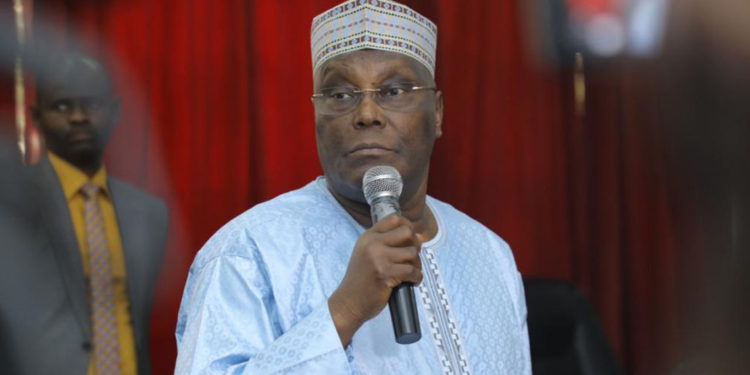In a pointed response to former Vice President Alhaji Atiku Abubakar’s recent criticism of President Bola Tinubu’s economic reforms, the presidency has questioned Abubakar’s track record on financial matters, describing it as “tainted” and emphasising the necessity of the Tinubu administration’s reform agenda.
In a statement issued by Bayo Onanuga, Special Adviser to President Tinubu on Information and Strategy, the presidency defended its policy decisions, pointing out that Nigerians neither forget nor forgive the former vice president’s economic approach.
“Nigerians have not forgotten this, nor would they be comforted by Atiku’s antecedents when he ran the economy in the first term of President Olusegun Obasanjo’s government,” Onanuga said.
He pointed to Abubakar’s role in what he described as a “questionable privatisation programme”. He noted that Abubakar and Obasanjo “demonstrated a lack of faith in our educational system” by establishing their universities while public institutions struggled.
“Talk is cheap. It is easy to pontificate and deride a rival’s programmes even when there are irrefutable indices that the economic reforms yield positives despite the temporary difficulties,” he added.
Given his track record, Onanuga argued that Abubakar’s recent criticisms lacked credibility. “Abubakar lost the election partly because he vowed to sell the NNPC and other assets to his friends,” he said, asserting that this pledge was remembered by voters who rejected Abubakar’s bid in 2023.
“First, Alhaji Atiku’s ideas, which lacked details, were rejected by Nigerians in the 2023 poll.”
He also criticised Abubakar’s calls for a gradual approach to economic reforms, which he suggested would soften the policies’ impact on ordinary Nigerians.
The presidency, however, maintained that gradual reforms would be insufficient to address the country’s challenges.
“His advocacy for a gradualist approach only showed that he was not in tune with the enormity of problems inherited by President Tinubu,” Onanuga noted, describing the economic situation Tinubu inherited as one demanding decisive action.
The government’s response highlighted the need for immediate action to tackle issues such as unsustainable fuel subsidies and arbitrage in the foreign exchange market.
“No leader worth his name will allow these two economic disorders to persist without moving to end them surgically,” Onanuga asserted.
He emphasised that the Tinubu administration is prioritising long-term gains over short-term comfort.
While acknowledging Abubakar’s calls for reforms with a “human face,” the presidency affirmed that Tinubu’s policies already prioritise support for vulnerable Nigerians.
“We have no problem with this as it resonates well with our administration’s focus,” Onanuga said.
He cited the government’s emphasis on social safety nets and targeted assistance for those most affected by recent economic adjustments.
The presidency characterised Abubakar’s criticisms as politically motivated.
“It is so easy to paint a flowery to-do list. It is expected of an election loser,” Onanuga stated.
He reiterated the government’s confidence in its chosen path: “Despite the futile attempt to hoodwink Nigerians again in his statement, it is gratifying that the former Vice President could not repudiate the economic reforms pursued by the Tinubu administration because they are the right things to do.”



